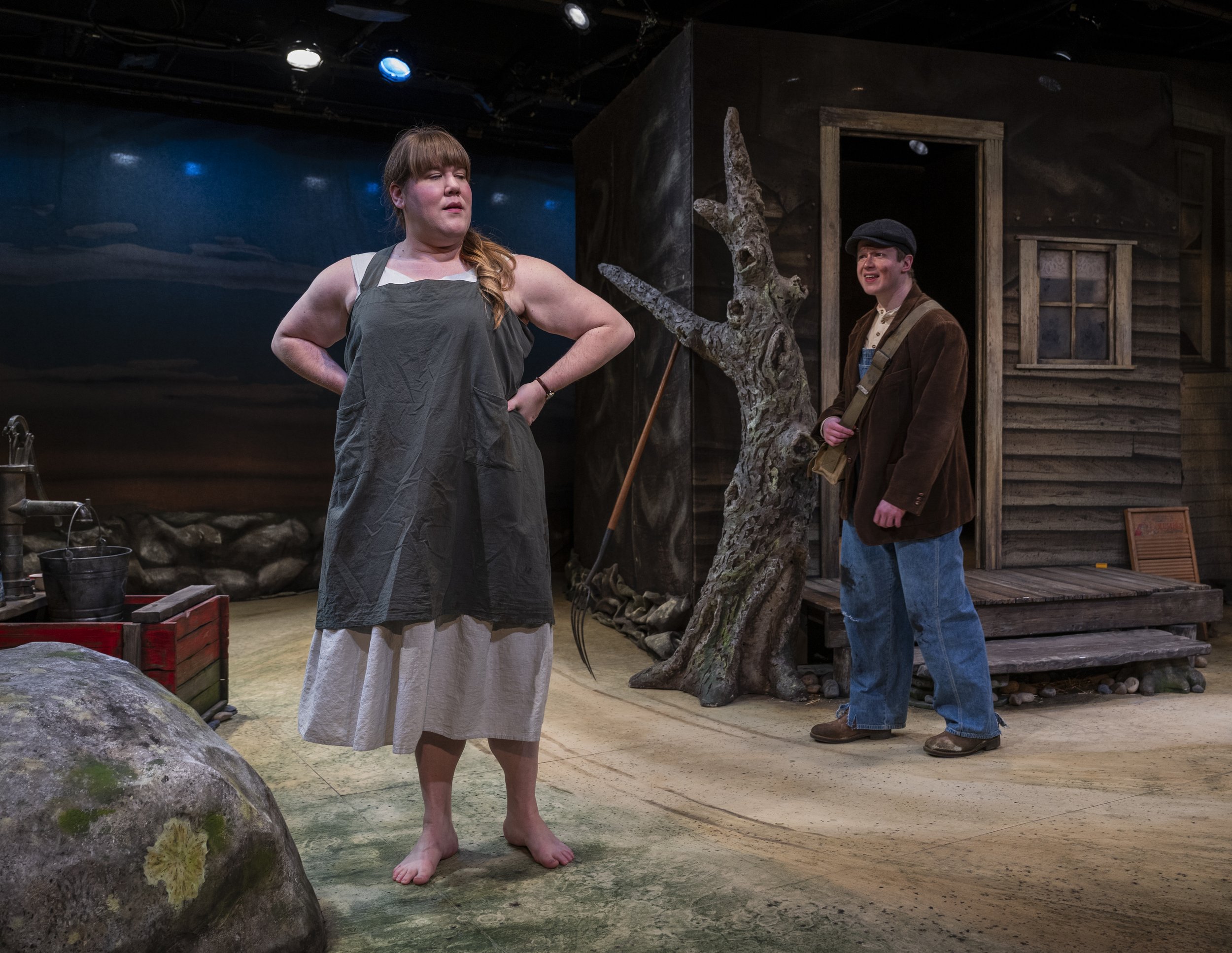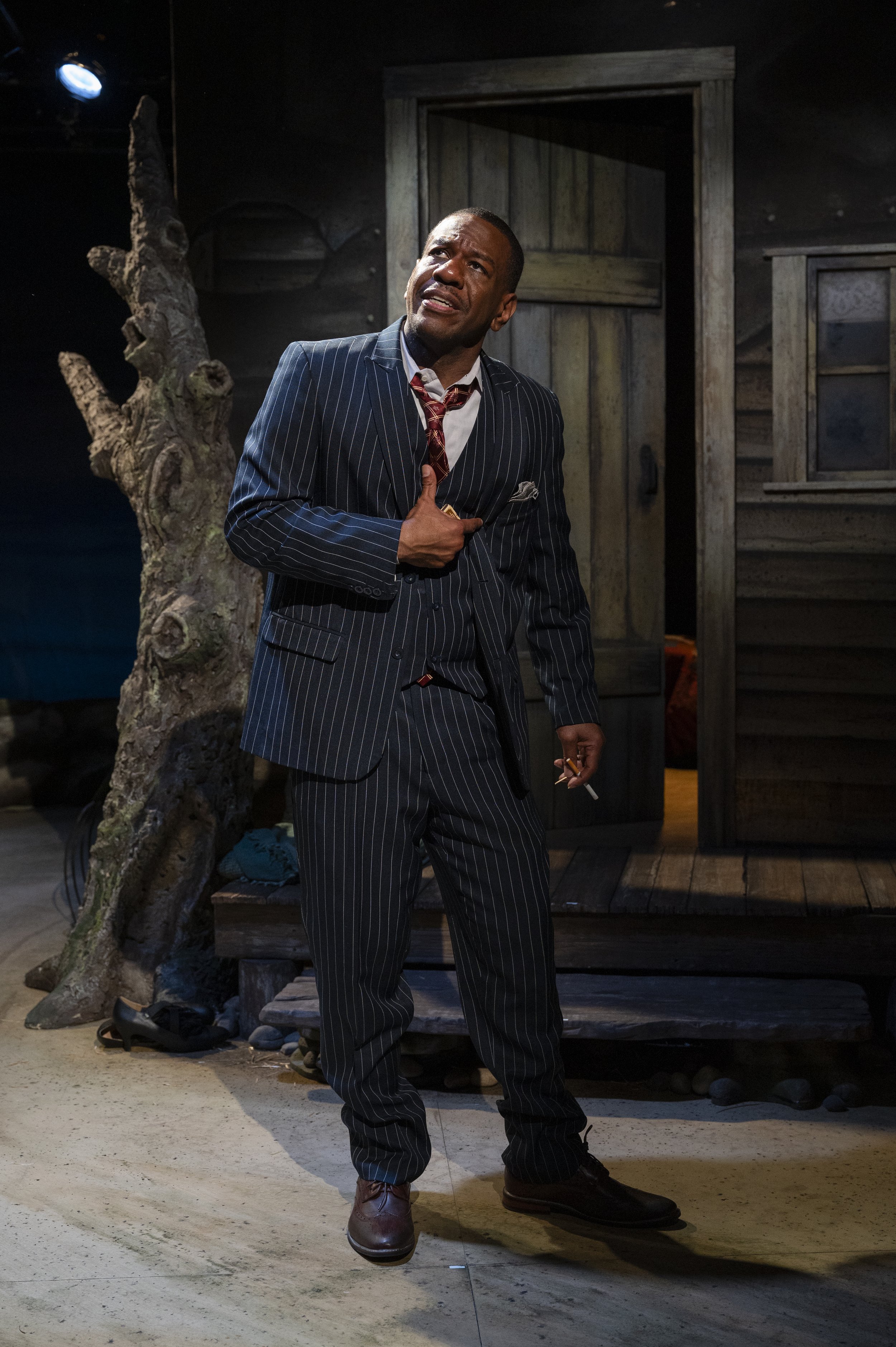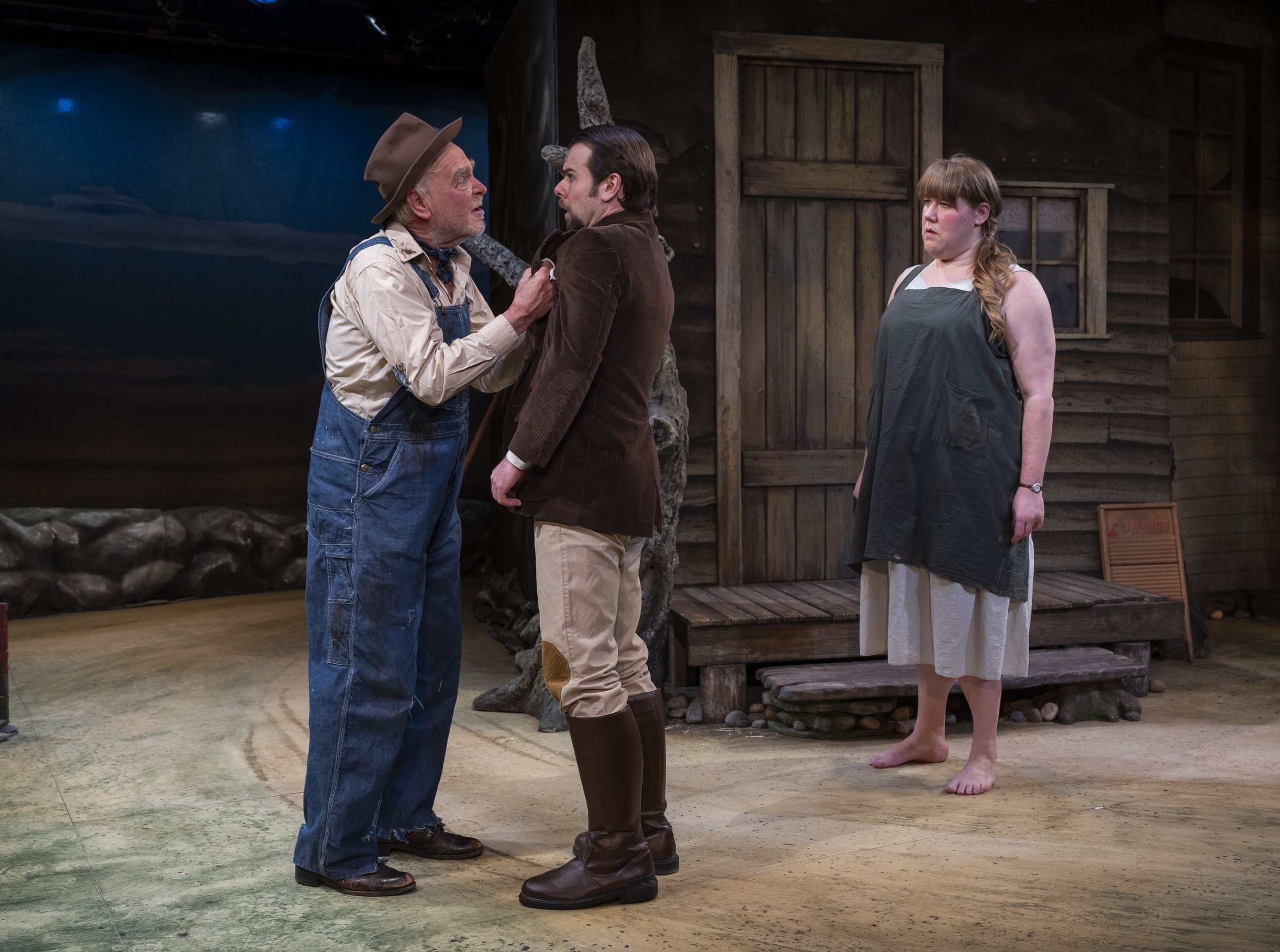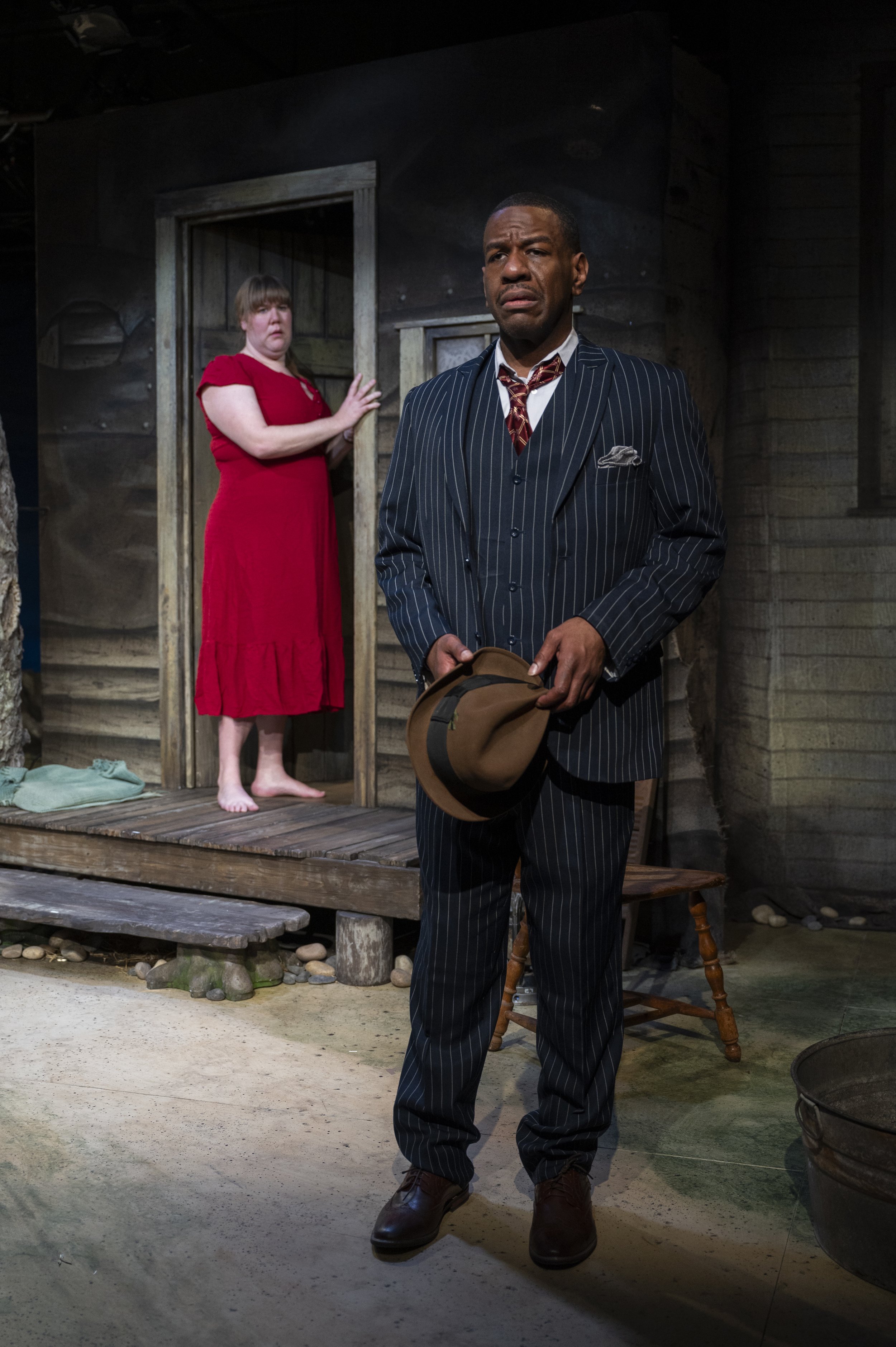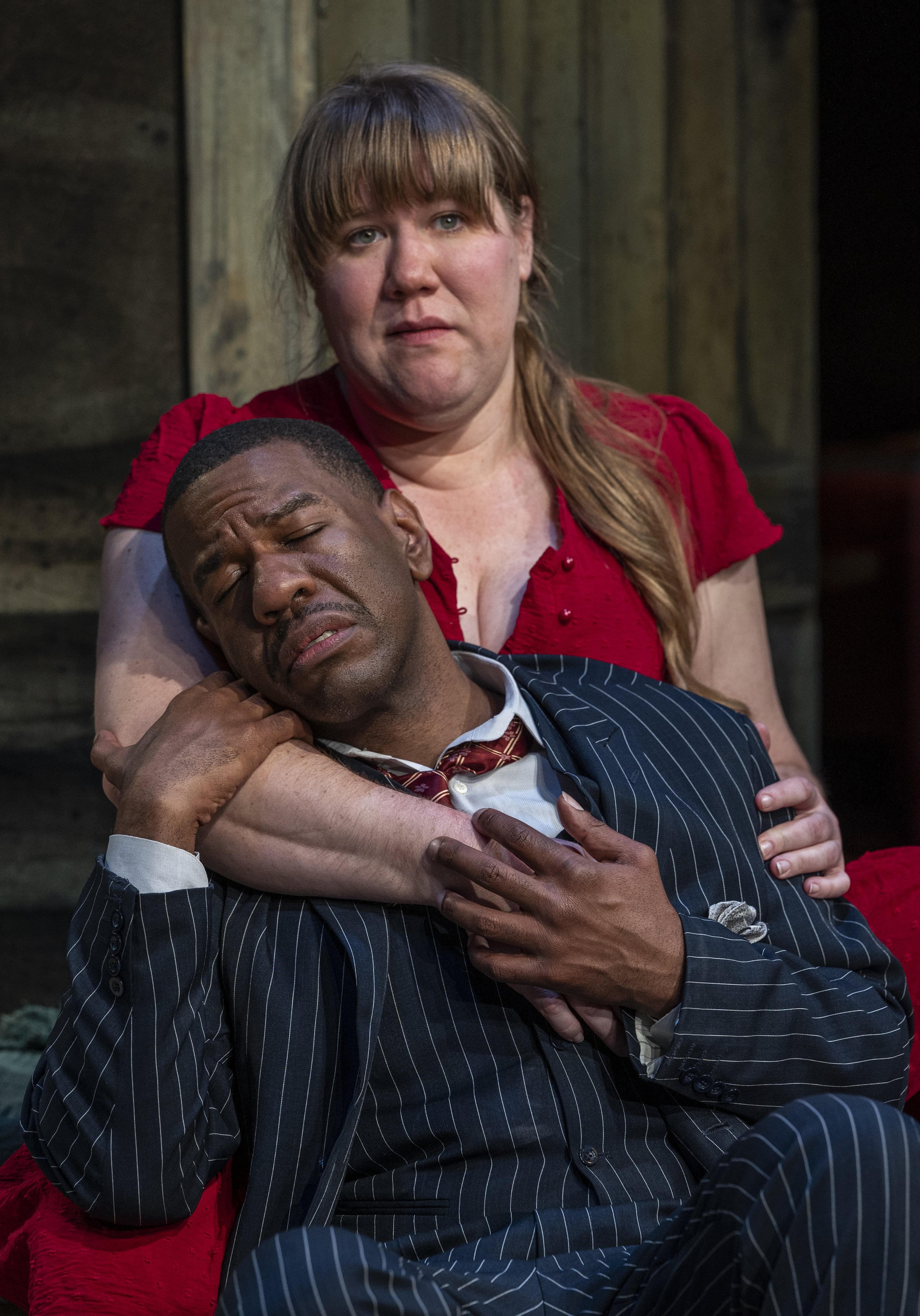AN ILLIAD - SnapShot Press Release
/photos by Michael Brosilow
Humanity has a way of showing us its values.
Our fate lies somewhere between the unknown and the unhinged [what a spectrum]. However, it is usually through reflection, anecdotal and historical, from a distant past to a very near present that we see the repetition of lore and find ourselves questioning the meaning of it all.
Sunday’s [September 22nd, 2024] Milwaukee Chamber Theater’s performance of AN ILIAD, was an emotional display of genius, wrapped in the tradition of Grecian tragedy, smothered in the plight of modernism oblivion to the human condition, and how “WE” got here. Lisa Peterson & Denis O’hare’s interpretation of Homer’s The Iliad translated by Robert Fagles, bares us from the smoke and mirrors of social exchange, grounding us in the power of mono-interpretation storytelling. However, it is N'Jameh Camara (The Poet) and Kellen “Klassik” Abston (The Muse/ Composer) that brought the shores of Troy and the backdrop of the Aegean Sea into reach within the circular “void” of the Milwaukee Youth Arts Center.
IT’S GIVING DRAMAAAAAAA!
As N'Jameh drowned herself in a bottle of “spirits” she walks us through the tale of Hector and Achilles, the Trojan War, and the fate of their battle. Her monologue was striking. When & where are we? In the “now” of disruptive political turmoil, or in the “then” of disruptive political turmoil? In the “now” of men policing the body of women or in the “then” of men policing the body of women? In the “now” of socially induced hysteria or. . . It did not matter, N'Jameh as the poet reminded us that these fates could be our own and that we must not shrug lightly at the flaws of man, because we are MAN.
With just a suitcase, a bench, and a few layers of clothing N'Jameh flings her head back and stairs into the eyes of the audience [the people] then rushes to gesture the interactions of warriors, lovers, enemies, friends, and family. She makes us grieve the death of Patroclus, the same way we grieve, the limp bodies of boys found slayed on street corners in rival “hoods”. She makes us speculate Helen [Helen of Troy or Helen of Sparta depending on who you ask] agency in her selection of suitors. Was Helen into Paris or nah? Does Helen even want Menelaus to defend her or does she just like to see men get all hot and bothered over her? [Is killing the highest or lowest form of flattery that can be offered].
All I know is that when N'Jameh reflects on what war this landscape of carnage reminds her of, she list every war that humanity has documented, and my eyes flooded with stinging tears as if the waves had crashed upon me and I was destined to drown.
The mantra of monikers. . .
Peloponnesian War
Crusades
Powhatan War
Mexican-American War
World War I
Arab-Israeli wars
Vietnam War
Israel–Hamas war
. . . It went on and on for what seemed like forever. How could we not see it? How could we not understand that we have failed to protect our species from butchery? How could we not plead for forgiveness when we have all let our egos slaughter our potential for collective peace? N'Jameh wailed in a dialect of pain and her voice carried through the room into some distant pit of sorrow. I have been to many performances, but I have never felt so soul-crushed in viewing the truth.
I am guilty. We all are guilty.
This ability to drag our senses into the thick of it was not an isolated win. Klassik’s arrival into the theater as The Muse allowed for an auditory awakening or a soundtrack to a collective soul cry. His layered vibrations made us hear waves on the battle beach, the clash of metal weapons against armor, and the vastness of hundreds of thousands of ships arriving. His musical composition was boisterous and delicate all at the same time. We needed his contribution, we needed the liquid “spirits” to release this auditory vision for The Poet to relive, what we all must rectify.
AN ILIAD is an experience that humanity needs. It is a scream for repentance in public intimacy. As we find ourselves pinned into battles that may be sanctioned by the Gods [Yours, mine, theirs, ours, or no one's] and ask for conviction in our uncertainty [who deems our deeds good or evil?] We must remember that we are all villains in someone's story.
[& the comedic relief was there. But only enough to make us say “Ohhhh boy we’re screwed.”
I invite you to approach your humanity and experience Milwaukee Chamber Theater’s AN ILIAD, for the sake of us all.
Lexi S. Brunson
Editor-in-Chief /CW









